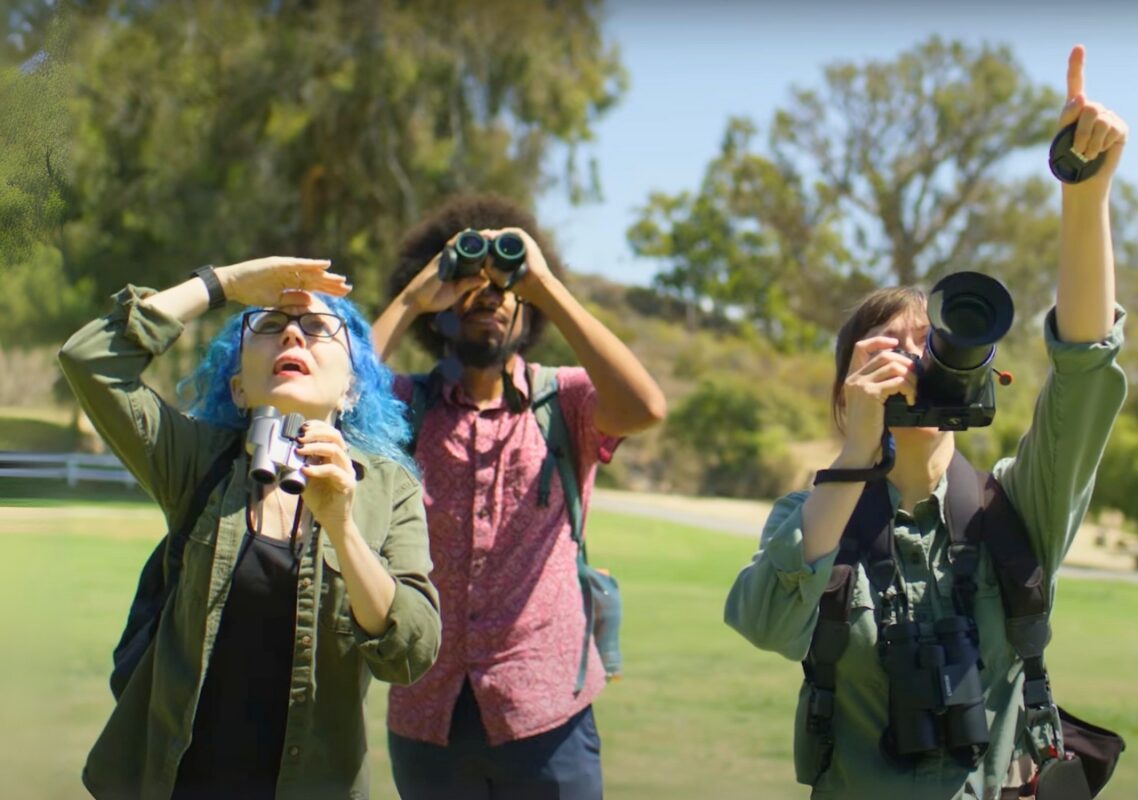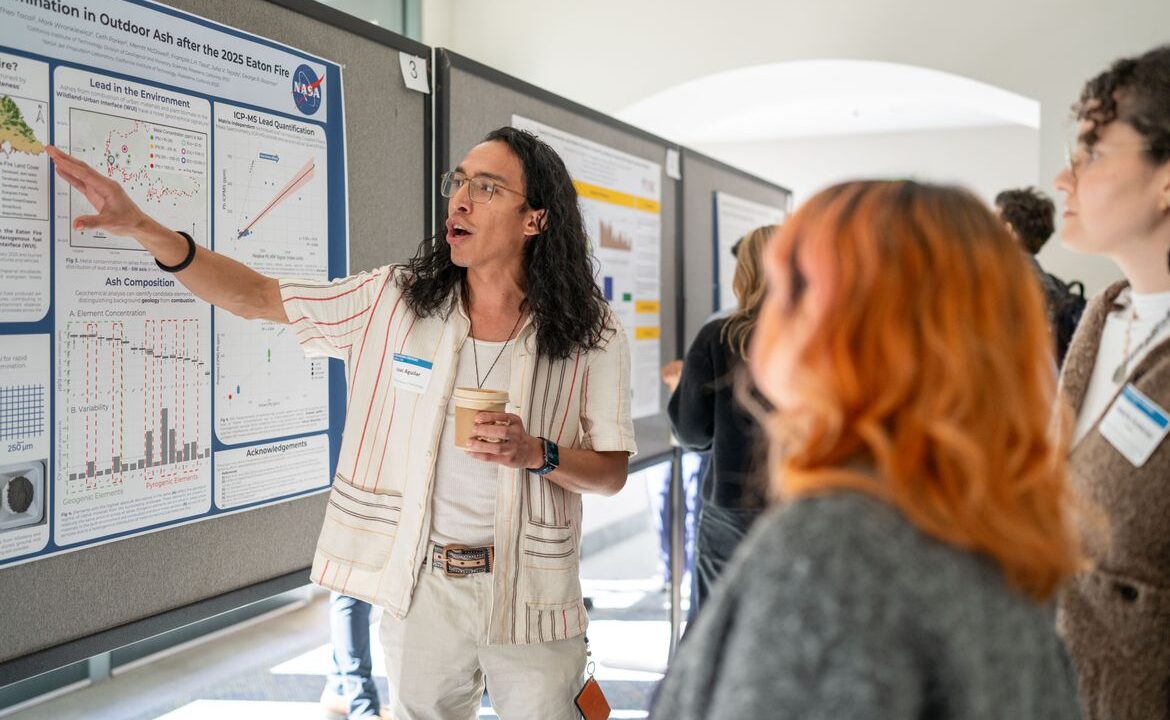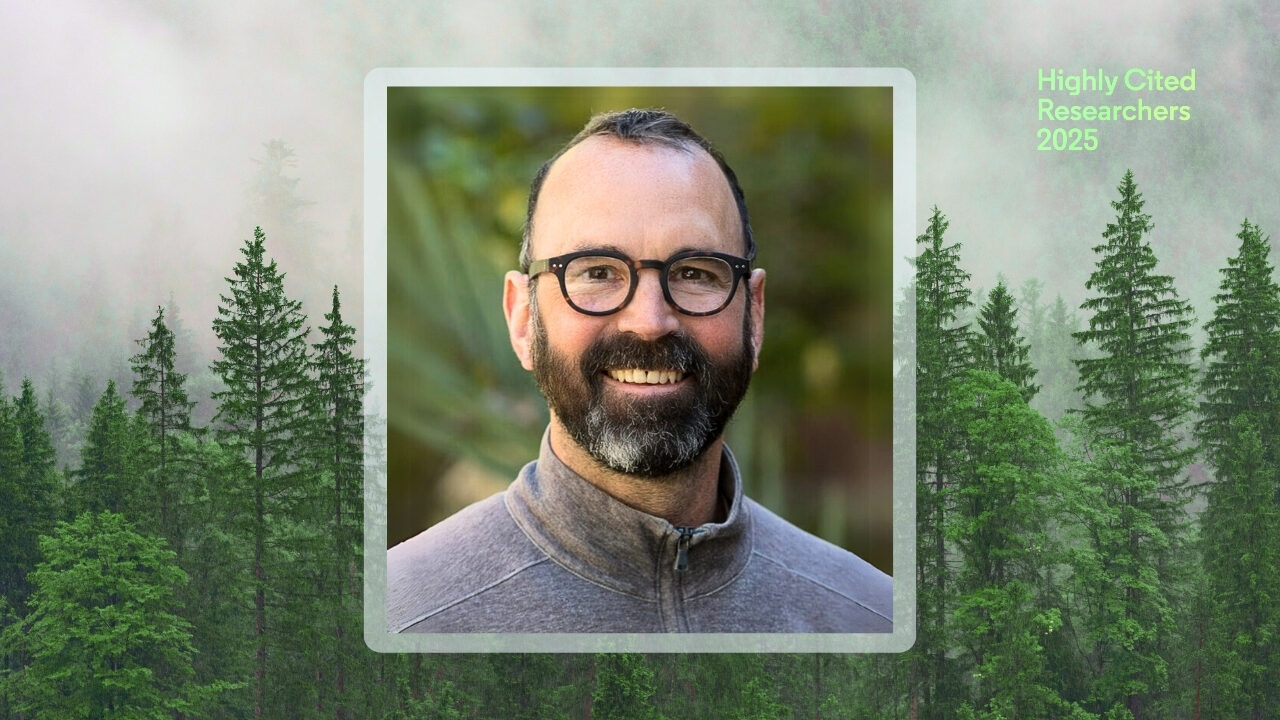
How watching birds for 10 minutes a week can help climate scientists this summer
UCLA’s annual Project Phoenix aims to document how birds change their behavior when there’s more wildfire smoke
From avid bird watchers to kids on summer vacation, anyone on the West Coast who can carve out some time this fire season to observe the habits of their local flying friends is encouraged to join UCLA’s annual Project Phoenix.
The project returns for its third installment this July 1. That’s when hundreds of citizen scientists from California to Washington will begin spending 10 minutes each week observing birds in their neighborhoods.
Project Phoenix’s data so far indicates that birds change their behavior on days with heavier air pollution or more wildfire smoke. (To learn more about Project Phoenix, and how you can get involved, go here.)
Birds provide vital ecosystem services, from pollination to pest control, but the bird population has decreased by 3 billion in North America since 1970, and increased exposure to wildfire smoke might be contributing, said Project Phoenix’s director, UCLA ecologist and postdoctoral scholar Olivia Sanderfoot:
- “Engaging folks in birding and data collection is just as important as the science itself, because in order to convince somebody to make a big change, they have to care about what you’re trying to protect.”
- “We’ve found that when the air quality is bad, that changes the likelihood of observing birds. Some species are spotted more, some less. Maybe the species we’re seeing more are using resources like bird baths more often, or becoming more aggressive and exhibiting more territorial behavior. Those are among the questions we’re hoping to answer this year with more volunteers collecting more data.”
- “Our volunteers include beginner bird watchers, longtime birders, and elementary and high school students. We have lots of resources to help new or younger birders. In my view, one of the biggest impacts of our program is hearing that our first-time volunteers adopt birding as a long-term hobby because of our community science engagement.”
- “Even for people who aren’t birders, being in a place that has more birds and is full of bird song makes us happier, and for that reason alone, birds are worth protecting. But they also provide many ecosystem services that people benefit from, such as pollination and pest control. Birds are part of a larger ecosystem worth protecting, too.”
Media are encouraged to quote from Sanderfoot’s comments or reach out to schedule an interview with her and other UCLA climate and environmental experts.
Sanderfoot studies the impacts of wildfires and wildfire smoke on birds and other wildlife. She is an ecologist and postdoctoral scholar at UCLA in the Tingley Lab of Global Change Ecology & Conservation, and serves as program director of Project Phoenix, as illustrated in this Project Phoenix video.
Media can sign up to receive UCLA Degrees emails, with a mix of information to spark story ideas, expert commentary to shed light on current climate news and research with impact.




